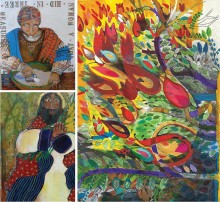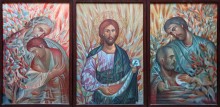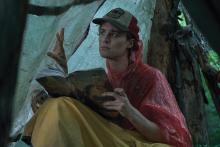In the garden of grief
She pummels the ground, rakes, hefts
foot on shovel, slices the earth.
Her trowel unburies the root systems
of grass, clover, wild strawberries
pitching runners. She dredges for taproots,
plucks out invasives, sifts
clumps of clay, culling the rue
wild to reseed itself even
in rock. Into loam she combs centipedes
and snails, braids topsoil with humus,
laces the plots of tilth with seeds,
knowing the split seams will shoot





